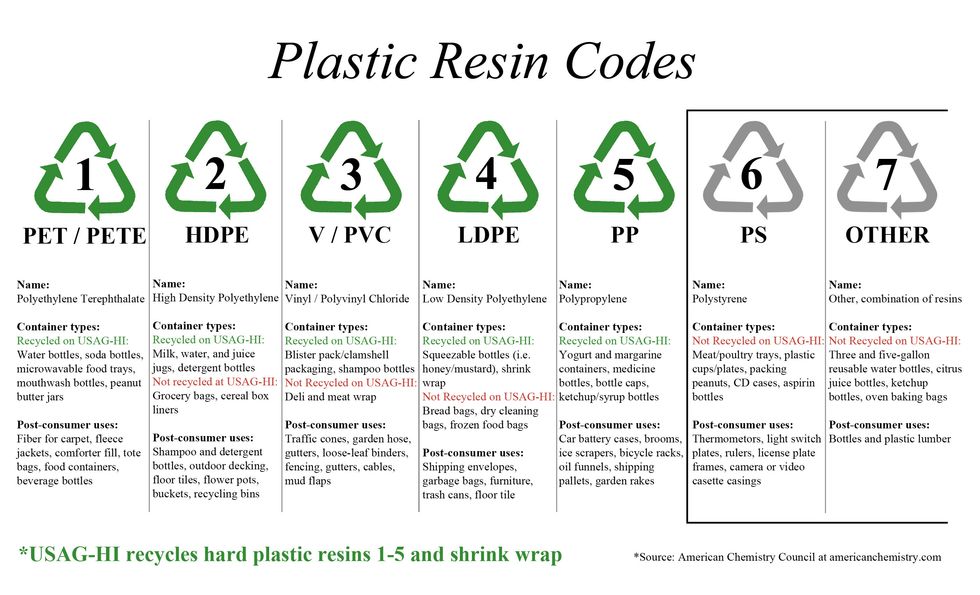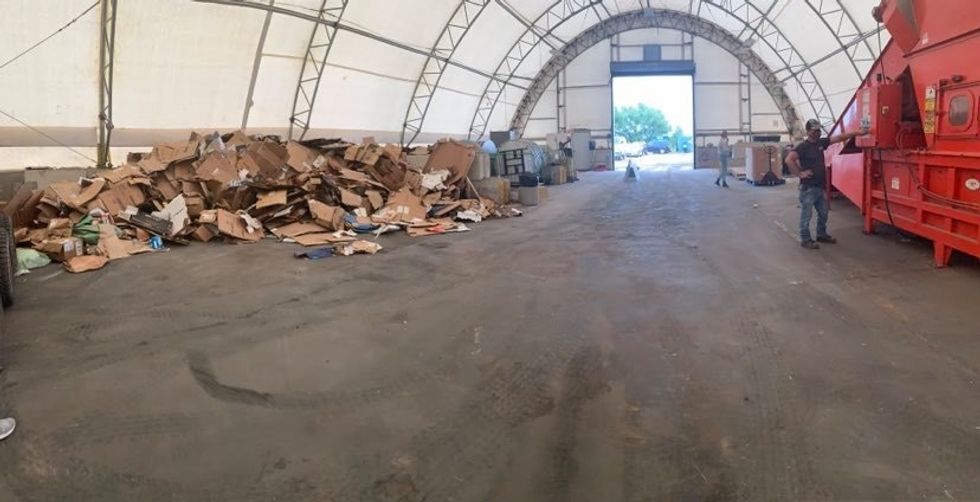It is way past due that I use this platform for more than entertainment, especially now that I have learned so much since starting my job working for the OSU Sustainability Office. This position has been a dream come true for me. In the three months I have been working here so far, I have toured recycle centers, water treatment plants, and given a few tours of my own around campus highlighting its sustainable features. I have never felt so connected to nature, and I get paid for it!
A big part of my job right now is leading OSU's celebration of America Recycles Day on Sunday, November 15! We are asking Stillwater students and community members to look into their local recycling programs to be more sustainable consumers. We are encouraging them to let us know that they did this by signing an online pledge to "Recycle Right" on and off campus.
You can see more information on this by checking out OSU Sustainability's social media posts (@OSUGreen), or by signing the pledge yourself!
This campaign is important to us because recycling is something that is advertised to be one of the best things you can do for the planet. The reality is much less glamorous, though.
Recycling, you say? Yes, I say. Through my job, I have learned that recycling is complex and not as glamorous as us tree-huggers wish it to be. Let's dive into what exactly I mean and how we can work together to make this issue less ugly.
Not everything with a recycle triangle is actually recyclable!

Plastic recycling codes and meanings
It makes sense that if the plastic packaging my new hairbrush comes in doesn't have a recycle triangle on it, I throw it away. So wouldn't it also make sense that if it does have the triangle, I recycle it?
Look, I hear you. I wish it worked this way! Until I started my job, I thought it did.
How it really works depends on the program in your area. Every city or institution has its own rules for recycling based on two things: the processing facilities they have to deal with the things you throw into your recycle bin, and the companies that buy or otherwise take the recycled materials from the recycling facility.
This makes sense, and I figured the recycling industry worked this way to some extent. However, I also figured that even if I put in something that wasn't acceptable in my local program, better safe than sorry, right? Wrong again.
In many facilities like OSU's, if too much of the incoming material is waste according to our facility policies, the whole bin has to get thrown away. Ouch...
In this sense, it is best to remember this phrase: "When in doubt, throw it out."
If you have to question in an instant which bin to put something in, the safest and most environmentally beneficial option is to put it in the garbage can.
Here are some links to accepted recyclable materials in areas where most of my readers come from:
ResLife Recycles (residential halls on the OSU campus), OSU Recycles (non-residential areas on campus), What's Recyclable? - Stillwater, OK, Lawton Recycling and Disposal (it is probably easiest to take everything to Target, though!), Edmond Recycles, OKC, OK - What To Recycle (curbside), OKC, OK - What To Recycle (drop-off locations), and Recycling in Weatherford.
Recycle bins can't be treated like a fancy trash can.

A coworker and I giving a campus sustainability walking tour
Ilda Hershey, my boss
As we've established by now, recycling is complicated.
Think of it this way: if trash cans are golden retrievers that will eat anything and do anything for you, recycling bins are diva cats that will only love you if their food is heated to precisely 123 degrees.
No two recycling programs are the same, but it is safe to assume one thing besides listening to the list of accepted materials: rinse out your food containers! Most recycling facilities, especially in Oklahoma, are operated by people. Nobody wants to sort through plastic tubs with remnants of your leftover Applebees from three weeks ago. Rinse out your food containers before putting them in the blue bins — otherwise, you can risk the whole bin getting thrown out.
Two words: Plastic. Bags.

A couple weeks' worth of recyclables for me
Gabby Barber
Oh gosh. Plastic bags.
There is a reason several states have banned plastic bag usage. These policies are not lollipops and rainbows, either, but maybe we'll talk about that another time.
Plastic bags, simply put, are awful for most recycling facilities. Plastic bags going through machinery designed for rigid plastics act like tacky glue that jams up everything. No fun. This is why places like Walmart and Target have separate bins for plastic bags. Please be careful not to assume that all plastics are the same!
Recycling is super inefficient. Try to reduce first!

Inside part of the OSU Recycles recycling facility
Gabby Barber
Someone bring me a soapbox because I'm going to need it.
Here's the sitch: Recycling has been inefficient from its first conception. Guess who birthed the blue baby? Oil companies.
"Gabby, aren't oil companies the bad guys to avid recyclers?"
Yes, yes they are.
Plastics are synthetic materials made from varying polymer chains that start out as crude oil. When scientists and private investigators realized several decades ago that exponential plastic production and consumption was bad, oil companies invented recycling. It was more profitable and more convenient to shove the plastic burden onto consumers, and the advertisements of recycling made people feel good. In this process, everyone kind of forgot about the plastic problem.
This is a great example of something Abraham Lincoln pointed out over 100 years ago: "... public sentiment is everything. With public sentiment, nothing can fail; without it, nothing can succeed."
Recycling was never designed to maximize productivity or environmental assistance. It was designed to make us feel good about using plastic. However, the best option is to not use plastic at all. Some alternatives could include making coffee at home instead of going out, bringing silverware from home instead of using plasticware, and so many more. You can find tons of alternative ideas online like these.
Get reconnected with nature to really value recycling.

Hiking in the Black Mesa in Kenton, Oklahoma
Joshua John, my lovely boyfriend
Why should I even care about recycling? Why should I care how recyclable waste hurts the environment?
I don't need to tell you something the Earth can say better. We benefit physically and mentally from the outdoors. Nature does so much for us, I could spend the rest of my life talking about it.
Actually I am. After undergrad, I plan to get a Ph.D. to research tree genomics for facilitated tree adaptation!
Succinctly, though, it is important to sustain our natural resources so future generations can enjoy them like we do. Nature is resilient, but Mother Earth can only take so much. We owe it to her to be good stewards for the short time we live in her home. By being good recycling stewards, we ensure that we are doing our part to protect our home.





















